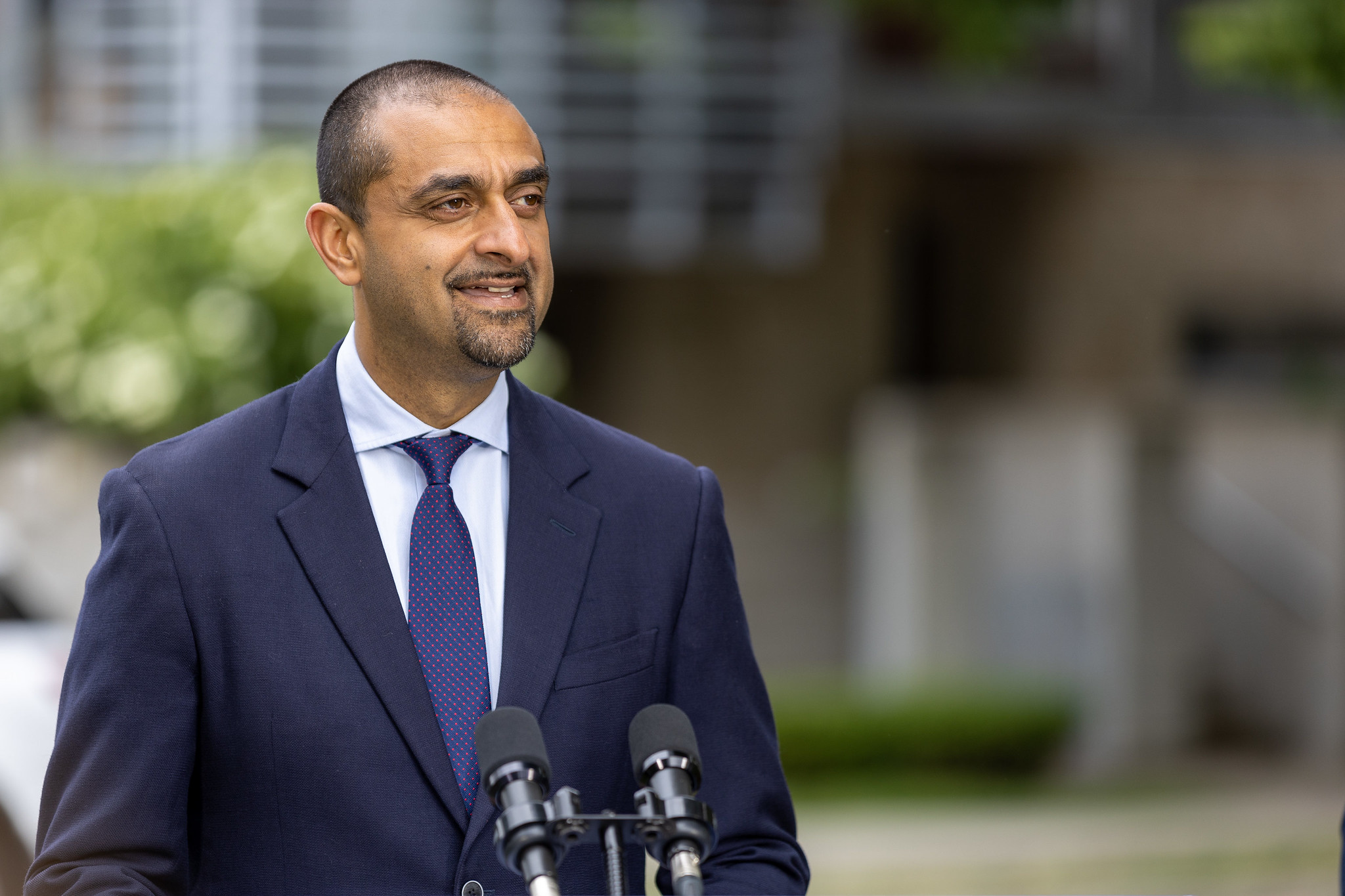Q&A: B.C. Housing Minister Ravi Kahlon talks construction
Kahlon was first elected as MLA for Delta North in 2017. As housing minister, he has be working to address the affordable home crisis.

B.C. Housing Minister Ravi Kahlon. – Province of B.C.
2023 was a busy year for B.C. Housing Minister Ravi Kahlon as he helped get several major pieces of housing legislation passed and he has his eyes on more reforms. With so much movement on speeding up construction, SiteNews caught up with the minister to talk construction barriers, prompt payment, his own experiences in the trades and much more.
SiteNews: B.C. has been on a massive run of legislative reforms to speed up the development and construction of homes. What sort of effort did it take to get these reforms across the finish line?
B.C. Housing Minister Ravi Kahlon: These changes are a reflection of the basic concept that we can’t do the same thing and expect different results. We know the system needs reform and we started engaging in that better path back in 2018. Premier Eby made it clear that we need change because things are not working for too many people. Our staff worked around the clock and stakeholders worked with us aggressively to ensure that we land on the right policies.
What do you feel is the biggest barrier to home construction in the province and what are the next major ones B.C. is looking to address in the coming years?
There are process barriers that we are reforming through legislation. This means getting to decisions quicker. One of the biggest frustrations is we develop these community plans and then require projects to go through an extensive process again. That is why we are reforming the process, including CACs and ACCS. We have also moved to allow housing as-of-right to ensure we get housing faster. Then there is the actual construction. We have to find ways to build differently. We are looking at allowing single-egress stairs. We are looking at mass timber to allow housing to be built much quicker because we know it can be built with less people, as we will have a labour shortage for the next few years. So there is the process side and the construction side and we are working on both at the same time.
Tell me about the role data and modeling played in crafting some of B.C.’s policies. I understand you looked at Washington State and New Zealand. The province also worked with economic and planning experts to analyze potential impacts.
The policies that were brought into place, we believe, are best practices across North America. Our BC Housing advisory group recommended many of the things that we have done. We also looked at Ontario’s housing reports and incorporated things from both reports. We also brought in economists to quantify the economic impacts, but that analysis didn’t drive the changes. It was nearly there to ensure that what we were doing aligned with the targets we want.
Many in B.C.’s construction sector are frustrated that prompt payment legislation has yet to be passed in the province. Is this something that is on the ministry’s radar and do you have any updates on this?
The attorney general is actually leading this and they started just now on engagement, getting the scope of the problem and a possible path for us here in B.C. but that is being led by the AG and not the Ministry of Housing.
I read that your father worked at a sawmill. How did this impact your view on people who work blue collar jobs in construction, manufacturing etc.?
I was raised on jobs that required hard work, rolling up your sleeves and getting your hands dirty. After I graduated high school, I thought about maybe taking a year off. My dad said ‘great’ and sent me off to work for a company installing new windows in old homes. I worked for a plumbing company digging ditches in the winter to lay pipes. It gave me a real good understanding of the amount of work it takes to build housing and how hard that work is. I have many family in the trades or homebuilding sector so it is a comfortable space for me to be in. It is critically important for building the housing and important infrastructure in our communities.
Of all the skilled trades in the construction sector, if you had to choose one to learn, which one would it be and why?
There’s something wonderful, beautiful and artistic about being an architect and designing some of these homes. If I took one trade, I’d say it would be frame just because you can see something put up and into a structure. I enjoyed plumbing work but it was a bit to challenging for me. Maybe I’d have to revisit it again so plumbing would be my third.
